Discover The Sustainability Story
The Sustainability Story

The Sustainability Story
Author: CFA Institute
Subscribed: 108Played: 973Subscribe
Share
© Copyright 2025 CFA Institute. All Rights Resevered.
Description
The Sustainability Story podcast explores how environmental, social, and governance issues intersect with the investment industry and the global financial system. Each episode features insights from leading experts and practitioners who share stories of innovation and real-world experiences in sustainable investing.
To reach our hosts regarding sustainability-related topics: Deborah Kidd at Deborah.Kidd@cfainstitute.org, Nicole Gehrig at Nicole.Gehrig@cfainstitute.org and Paul Moody at Paul.Moody@cfainstitute.org
To reach our hosts regarding sustainability-related topics: Deborah Kidd at Deborah.Kidd@cfainstitute.org, Nicole Gehrig at Nicole.Gehrig@cfainstitute.org and Paul Moody at Paul.Moody@cfainstitute.org
63 Episodes
Reverse
How do climate events, transition risks, and insurance costs shape the future of commercial mortgage-backed securities? Daniel Warcholak, CFA, Head of Capital Markets at Basis Investment Group, shares his perspective on how extreme weather events, sustainability transitions, and green incentives like LEED certification and C-PACE financing are reshaping investment strategies. Drawing on more than 25 years of experience in securitized real estate debt, Daniel highlights the financial implications of climate risks and the opportunities emerging for investors. Listen now to gain insights into how sustainability considerations are transforming real estate debt and capital markets.
In this episode, Paul Moody interviews Clare Brook, a veteran of 24 years in sustainable finance who now leads Blue Marine Foundation. In their conversation Clare reflects on her journey from managing ESG funds and co-founding an investment firm to running an NGO dedicated to protecting the blue planet. Clare and Paul dive into innovative ways finance can accelerate marine conservation. They discuss cutting-edge mechanisms like blue bonds and debt-for-nature swaps that can funnel significant funding to ocean protection in countries that need it most . Clare also introduces the idea of biodiversity credits, a new tool for valuing restored ecosystems and attracting investment into projects from seagrass meadows to coral reefs . She explains how blending public, private, and philanthropic capital can help scale these solutions, even as she acknowledges the challenges of aligning investor expectations with conservation realities. Finally, Clare leaves listeners with an urgent yet hopeful call to action: finance professionals have a pivotal opportunity to drive meaningful impact in this space. Whether it’s backing transformative marine projects or simply using their influence to raise awareness.
Livio Stracca, Phd joins host Deborah Kidd, CFA, to introduce the innovative NGFS Short-Term Climate Scenarios. This groundbreaking tool is the first publicly available global resource designed to assess climate-related macroeconomic and sector risks over a five-year horizon for specific regions and industries. The scenarios demonstrate how extreme weather, policy shifts, and transition shocks could impact GDP, inflation, default probabilities, and financial stability within a time frame aligned with the decision-making process of central banks and financial institutions.
Nicole Gehrig speaks with Tamara Close, CFA, Senior Director of ESG Advisory for the Petra Funds Group, about the ongoing evolution of sustainable finance and ESG (Environmental, Social, and Governance) practices within the institutional investment landscape. Tamara reflects on her career path, including her time at PSP Investments, and shares key insights into the shifting perceptions and integration of ESG issues into mainstream investment strategies. The discussion covers how institutional investors have evolved and increased in sophistication when it comes to their ESG practices. It looks as well at the regional disparities in adoption, the distinct roles of public versus private markets, and the growing expectations placed on asset managers by institutional investors. Nicole and Tamara also examine the increasing demand for transparency, high-quality data, and measurable outcomes, from institutional investors emphasizing the maturation of considering ESG issues from a values-driven approach to a financially material integrated investment framework. Key Takeaways: • Institutional investors have progressed from values-based investing to fully integrating ESG issues into risk management frameworks, aiming to create real world impact through their investments. • Public markets are increasingly seen as a risk management play for institutional investors focusing on ESG issues, whereas private markets present more opportunities to deliver measurable impact. • Transparency and evidence-based results are essential requirements for credible ESG strategies. • There are key questions institutional investors can use to help assess a fund manager's ESG integration maturity. Chapters 00:00 Introduction 01:40 Tamara's Sustainability Story 05:08 How Institutional Investors Treat ESG Issues: Evolution and Trends 11:04 Regional Differences in ESG Practices and Regulations 15:13 Public vs. Private Markets: ESG Approaches 20:27 Expectations from Institutional Investors 23:30 Key Questions for Asset Managers on Integrating ESG Issues 27:41 Future of ESG Practices in Investment Strategies
Dr. Steve Waygood, Chief Sustainable Finance Advisor at Aviva Investors, shares insights from his 25-year journey in sustainable finance. He discusses the evolution from ethical investing to system-level stewardship, the under-pricing of climate risks in financial models, and the vital role of public policy in aligning markets with sustainability goals. Packed with real-world examples and forward-thinking advice, this episode is ideal listening for anyone interested in the future of finance and its role in tackling global challenges.
Mark Campanale, founder of the Carbon Tracker Initiative, talks with Paul Moody, Managing Director of Global Partnerships and Client Solutions at CFA Institute, about the growing risks tied to fossil fuel investments. Mark explains the concept of the carbon bubble—the gap between the carbon in global reserves and what the climate can safely absorb—and what it means for investors, regulators, and financial markets. We explore stranded assets, shifting energy economics, and why renewables and EVs are rapidly changing the game. Packed with insights on climate risk, valuation, and policy, this is a must-listen for anyone navigating the transition to a low-carbon economy.
In this episode of the Sustainability Story, host Nicole Gehrig, Director of Global Industry Standards at CFA Institute, discusses the importance of integrating nature-related risks into investment strategies with Mel Peh, CFA, an independent consultant for the United Nations Environment Program Finance Initiative (UNEP FI). They explore how nature-related risks, such as biodiversity loss and deforestation, can impact financial performance and the steps asset managers and owners can take to mitigate these risks. The conversation also highlights the use of frameworks and tools like the Taskforce on Nature-Related Financial Disclosure framework and the ENCORE tool to better understand and manage these risks.
Join Paul Moody, Managing Director at CFA Institute, as he sits down with Dr. Ma Jun, President of the Institute of Finance and Sustainability (IFS) and founder of CASI (Climate Action and Sustainability Initiative), for a thought-provoking discussion on the future of sustainable finance. In this engaging episode, Dr. Ma Jun shares his journey from shaping global sustainable finance policies to launching CASI, a groundbreaking initiative aiming to educate 100,000 professionals in Emerging Markets and Developing Economies (EMDEs) by 2030. The conversation explores the challenges and opportunities in scaling sustainable investment, the role of policy incentives, and how innovative financial frameworks can drive meaningful change.
In this episode of "The Sustainability Story," host Deborah Kidd, CFA, and Roman Kramarchuk, Head of Climate Markets and Policy Analytics at S&P Global Commodity Insights, delve into the significance of Article 6 adoption at COP29 and its implications for the role of carbon markets in achieving net-zero goals. Roman shares insights from his extensive experience in public policy and emissions and environmental markets. Their discussion also explores the use of carbon taxes versus carbon markets to achieve emissions reductions and the challenges that have been faced by voluntary carbon markets.
In this episode of the Sustainability Story podcast, host Nicole Gehrig welcomes Dr. Carmen Nuzzo, executive director of the Transition Pathway Initiative Centre (TPI Centre) at the London School of Economics and Political Science. The conversation centers around the TPI Centre's mission as the academic partner of the global investor initiative, highlighting the TPI tools, which provide independent, authoritative research and open-access data on corporate, bank, and sovereign entities’ progress in transitioning to a low-carbon economy. Carmen explains how investors can leverage these tools to assess sustainability efforts and make informed decisions in their investment strategies. Join us for insights into the vital role of data in driving sustainable investment practices.
Host Deborah Kidd, CFA talks with Monika Freyman, CFA, Vice President of Sustainable Investing at Addenda Capital, about the challenges asset owners and asset managers face when aiming to protect portfolios from the financial impacts of climate change. Monika shares practical advice on developing a comprehensive investment policy, measuring and managing the complexities of climate risk, and balancing climate goals with fiduciary duty. She emphasizes the importance of adhering to fiduciary duty fundamentals by ensuring that investment practices remain sound when integrating climate considerations.
Host Nicole Gehrig welcomes Dean Hand, Chief Research Officer at the Global Impact Investing Network (GIIN). They delve into the critical topic of impact investing, clarifying its definition amidst common misconceptions in the investment marketplace. Dean shares insights on the GIIN's role in promoting impact investing and its commitment to developing effective practices that address global challenges. The episode highlights the importance of investing with the intention to generate positive and measurable social and environmental outcomes. Tune in to gain insights into the role of impact investing in addressing the world's pressing challenges.
Listen in as Dr. Jane Thostrup Jagd, Director of Net Zero Finance at We Mean Business Coalition, and Josina Kamerling, Head of EMEA Regulatory Outreach at CFA Institute, discuss the necessity of integrating sustainability departments within companies, particularly in collaboration with financial teams. The challenge lies in ensuring that knowledge about sustainability extends beyond mere compliance and reaches all levels of the organization. There is a call for greater openness from financial professionals towards sustainability agendas. The conversation also touches on the readiness of investors to comprehend and utilize new sustainability reports, highlighting a current gap in understanding that needs to be addressed for effective implementation in the future. #Sustainability #SustainabilityStory #NetZero #EURegulations
In this episode of the Sustainability Story, host Deborah Kidd, CFA, talks with Dr. Aniket Shah, Managing Director and Global Head of Sustainability and Transition Strategy at Jefferies Group, LLC. Aniket leverages his work across academia, public policy, and financial markets to provide unique insights into the energy transition roadblocks and the three keys to overcoming them. He shares his insights on profiting from investment opportunities in climate technologies and why climate adaptation investments deserve special focus.
In this episode of the Sustainability Story podcast, Nicole Gehrig, Director of Global Industry Standards at CFA Institute, is joined by Lindsey Stewart, CFA, Director of Stewardship Research and Policy at Morningstar Sustainalytics. Together, they explore key themes in the realm of stewardship. Lindsey shares his insights on how institutional shareholders are approaching proxy voting and engagements that focus on environmental and social issues. Key topics covered include say on climate votes, the influence of proxy advisors, collaborative initiatives, and the significance of voluntary stewardship codes. The discussion highlights how regulatory differences in Europe and the US impact the prioritization of sustainability themes by investors on both sides of the Atlantic.
In this episode of "The Sustainability Story," co-host Josina Kamerling welcomes Nels Italo, Director of Product Strategy for Regulatory Solutions at FactSet. They delve into Nels' diverse background, from working in signals intelligence in the US Navy to becoming a corporate M&A attorney before focusing on financial service regulations. The conversation highlights the complexities of global financial regulations and the challenges faced by investors in understanding diverse accounting standards. Tune in to gain insights on navigating buy-side regulatory requirements in a global financial landscape.
In this episode of the Sustainability Story, host Deborah Kidd, CFA, interviews Paula DiPerna, author and Special Advisor to the CDP. In her book, Pricing the Priceless: The Financial Transformation to Value the Planet, Solve the Climate Crisis, and Protect Our Most Precious Assets, Paula offers a compelling argument for the need to assign economic values to nature’s essential resources. Paula takes us on a journey through history, world travel, case studies, and financial theory to demonstrate how bringing natural assets onto corporate and sovereign balance sheets, investing in resource-linked financial instruments, and putting a price on carbon are the keys to combating global warming and preserving the Earth’s resources.
Josina Kamerling and Leena Linnainmaa, Secretary General of Directors' Institute Finland, and Chair of ecoDa’s Advocacy Committee, have a conversation on the impact of the proposed new EU rules on corporate governance and due diligence on European companies and their board of directors.
In this episode of The Sustainability Story, host Andres Vinelli interviews Marcos Buscaglia, an economist and author of Beyond the ESG Portfolio: How Wall Street Can Help Democracies Survive. Marcos discusses the impact of capital markets on funding democracies and autocratic regimes, emphasizing the importance for investors to consider democracy amidst global democratic decline. He highlights the interconnectedness of countries and how a democratic decline in one nation can have repercussions worldwide. Marcos' insights shed light on the role of capital markets in shaping political landscapes and the need for ethical investment practices.
This episode of the Sustainability Story explores the world of impact investing in real estate, with a specific focus on affordable housing. Host Andres Vinelli is joined by Jeff Brenner, President and CEO of IMPACT Community Capital, an investment advisor dedicated to advancing opportunity in under-invested communities. They discuss the origins of IMPACT and its mission to make investments that have a positive impact on communities. They also delve into the challenges and opportunities in the affordable housing space and how impact investing can help address issues of poverty and equity. Tune in to learn more about the potential for investors in this asset class and the importance of building sustainable infrastructure for under-invested communities.


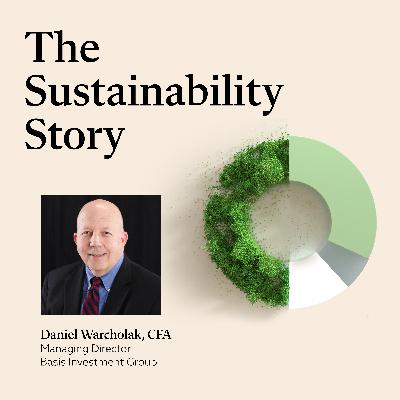
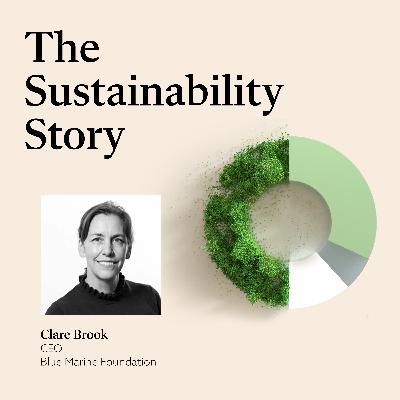
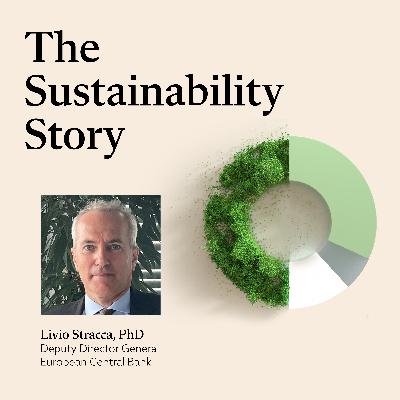
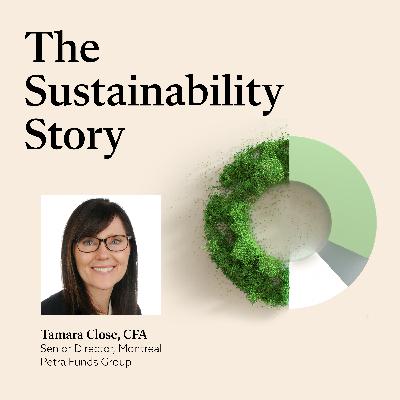
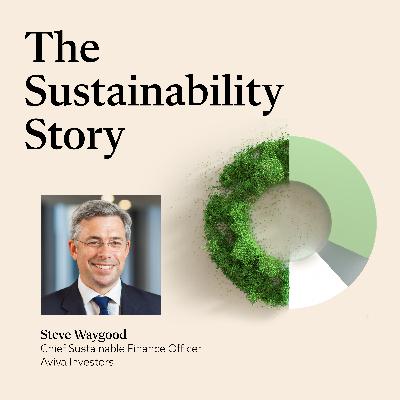
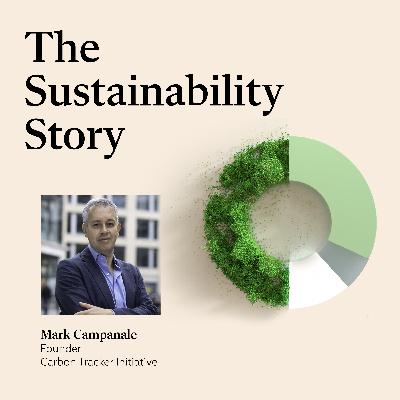
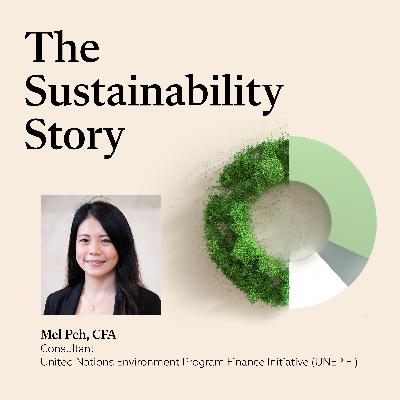
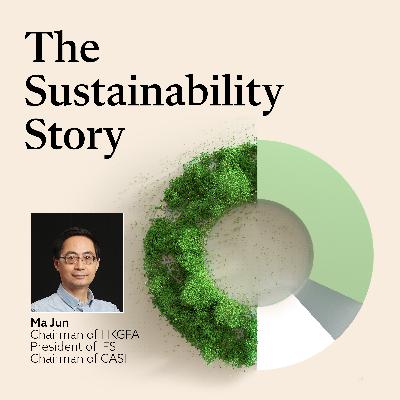
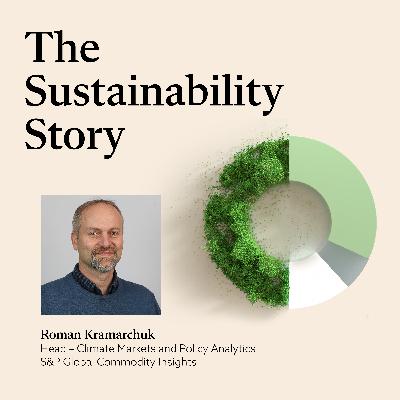
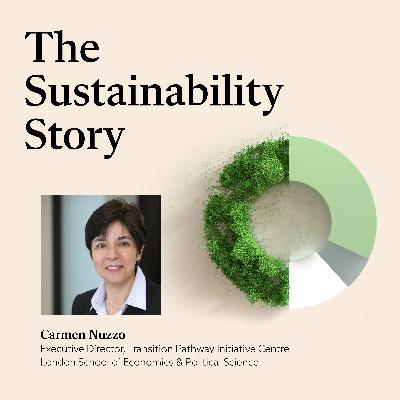
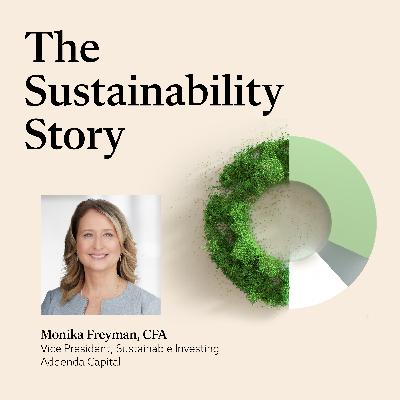
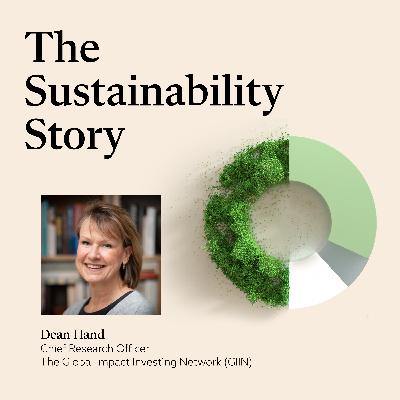
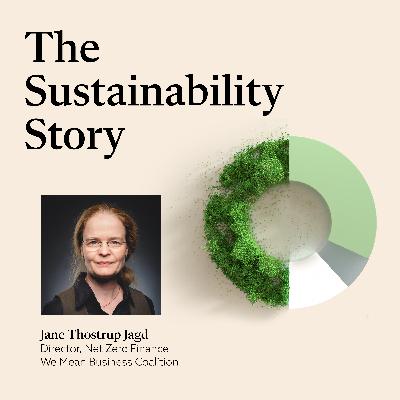
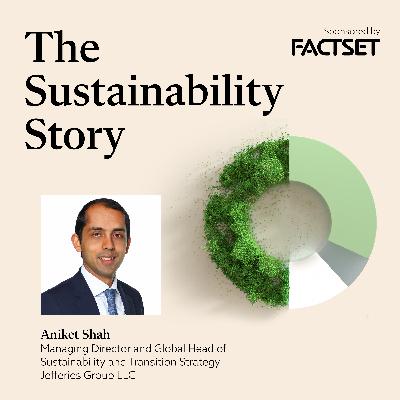
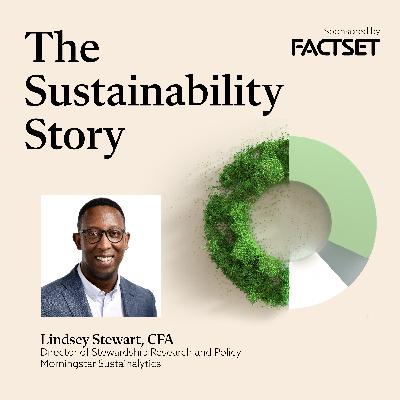
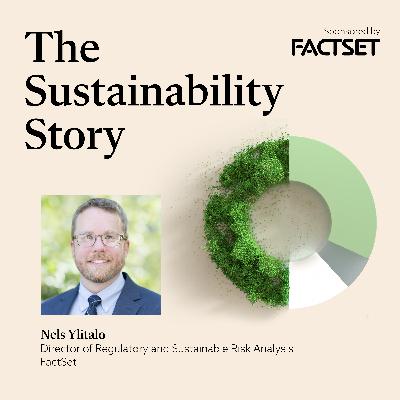
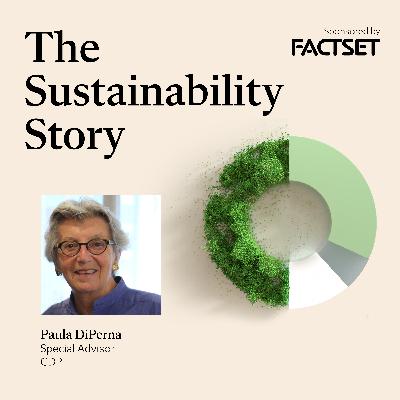
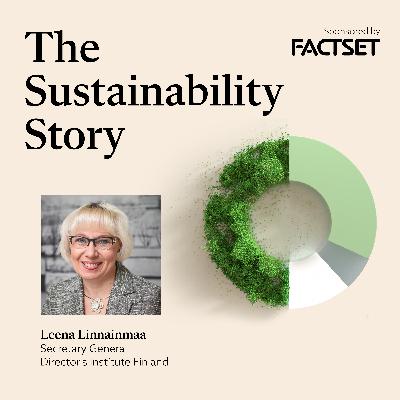
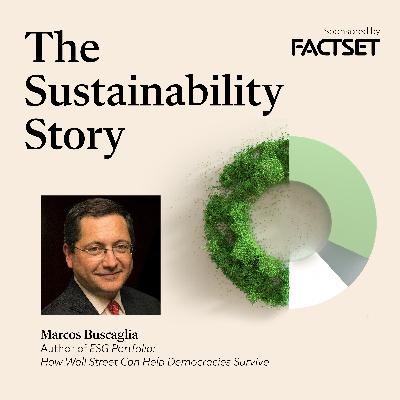
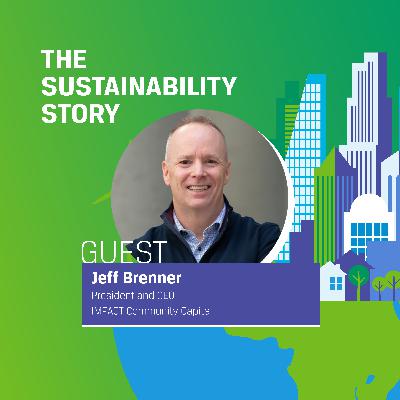



Brian was great, super knowledgeable. Interviewer would help by talking less and stop saying how complicated it is